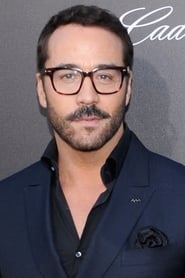In the film *The Family Man*, directed by Brett Ratner, we are introduced to Jack Campbell, portrayed by the talented Nicolas Cage. Jack is a high-powered Wall Street executive who thrives on the fast-paced lifestyle that comes with his prestigious career. His world is one of luxury and ambition, where every decision is calculated to maximize his success. However, everything changes on a fateful Christmas night when Jack intervenes during a grocery store robbery and successfully disarms the gunman. This act of bravery becomes a pivotal moment in his life, setting the stage for a profound transformation.
The following morning, Jack wakes up surprised to find himself in an entirely different reality. Instead of the glamorous life he is accustomed to, he awakens beside Kate Reynolds, played by the wonderful Téa Leoni—his college sweetheart whom he chose to leave behind in pursuit of his career ambitions. This alternate version of Jack's life is a suburban existence, complete with a loving wife, children, and the warmth of family that he had never experienced. As Jack explores this new world, he is forced to confront the choices he made in the past and the emotional toll they took on himself and those around him.
As Jack navigates through this alternate suburban life, he finds himself at a significant crossroads. He must weigh the allure of his former life filled with power and prestige against the genuine love and connection he experiences with Kate and their children. This journey serves as a deep exploration of love, sacrifice, and the meaning of true happiness. Ultimately, *The Family Man* poses an intriguing question: what truly defines success? Through Jack's experiences, the film suggests that the richness of life may not lie in material wealth, but rather in the relationships we build and the love we share.
Main Cast of The Family Man

Nicolas Cage
Jack Campbell
Nicolas Cage delivers a nuanced and compelling performance in the 2000 film "The Family Man," portraying the character of Jack Campbell with a deft balance of charisma and introspection. As a high-flying, successful Wall Street executive who is granted a glimpse into an alternate life where he is a family man in New Jersey, Cage adeptly navigates the complex emotional landscape of his character. His portrayal captures the initial shock and subsequent emotional journey of a man who has everything by society's standards but finds himself questioning the true meaning of success and happiness. Cage's performance is both grounded and transformative, as he convincingly embodies the role of a family patriarch, showcasing the tender moments of domestic life with warmth and authenticity, while also confronting the internal struggle and longing for the life he once knew. His ability to oscillate between the high-octane energy of his corporate persona and the softer, more reflective side of the family-oriented Jack provides the film with a poignant exploration of life choices and the value of human connection.

Téa Leoni
Kate Reynolds
Téa Leoni delivered a memorable performance as Kate Reynolds in the 2000 fantasy romantic comedy-drama "The Family Man," alongside Nicolas Cage. Her portrayal of an earnest, loving, and resilient wife and mother provided the emotional anchor of the film. Leoni's Kate is the connective tissue that binds the fantastical elements of the narrative to the relatable and heartfelt core of the story. Her chemistry with Cage's character, Jack Campbell, is palpable, whether they are sharing moments of domestic bliss or navigating the complexities of their rekindled relationship in an alternate reality. Leoni's performance is a testament to her range as an actress, as she effortlessly transitions between drama and comedy, imbuing her character with a warmth and authenticity that resonates with audiences. Her nuanced depiction of a woman caught between her own dreams and the love for her family adds depth to the film's exploration of life choices and the true meaning of success.

Don Cheadle
Cash
Don Cheadle delivers a memorable performance in the film "The Family Man" as Cash, a quirky and enigmatic figure who serves as the catalyst for the protagonist's life-altering journey. His portrayal is both charismatic and cryptic, imbuing Cash with a mix of wisdom and mystery that keeps the audience intrigued. Cheadle's performance is highlighted by his natural ability to convey depth and complexity with ease, bringing a sense of gravitas to the role. His interactions with Nicolas Cage's character are particularly engaging, as he challenges the protagonist's materialistic worldview and guides him through a transformative experience that explores the themes of love, family, and the true meaning of success. Cheadle's nuanced acting, marked by his impeccable timing and expressive range, allows Cash to be both a grounding force and an ethereal presence, leaving a lasting impression on the audience and contributing significantly to the film's emotional impact.

Jeremy Piven
Arnie
Jeremy Piven delivers a standout performance as Arnie in the heartwarming film "The Family Man," alongside Nicolas Cage. Piven adeptly portrays the role of Cage's character's best friend, Arnie, with a blend of charisma and relatability. His character serves as a grounding presence in the life of Jack Campbell (Cage), providing comic relief while also showcasing the complexities of friendship and loyalty. Piven's Arnie is both endearing and genuine, offering a stark contrast to Cage's high-flying corporate lifestyle. Through Piven's nuanced performance, viewers are given a glimpse into what it means to lead a life of unfulfilled potential, as Arnie grapples with his own personal and professional regrets while at the same time supporting Jack through his own existential journey. Piven's chemistry with Cage is palpable, and his portrayal adds an essential layer of authenticity to the film, making the audience root for both characters' redemption and happiness.

Saul Rubinek
Alan Mintz
Saul Rubinek delivers a compelling and nuanced performance as Alan Mintz in the 2000 film "The Family Man." His portrayal of a caring, if somewhat overbearing, family friend to Nicolas Cage's character, Jack Campbell, adds a layer of warmth and authenticity to the film. Rubinek's Alan is the quintessential good-hearted individual, whose genuine concern for Jack's well-being is palpable, especially as he tries to steer him towards embracing a life of family and connection over solitary financial success. Rubinek's scenes are often tinged with humor and wisdom, as he effortlessly oscillates between the roles of comedic relief and moral compass within the narrative. His performance is a testament to his ability to bring depth to supporting characters, making Alan Mintz both memorable and endearing to the audience. Through Rubinek's skilled acting, Alan emerges as a pivotal character whose influence on Jack's transformative journey is both heartwarming and instrumental to the film's emotional resonance.
Crew of The Family Man
Full backstage crew list →





